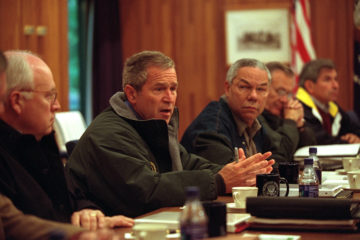
War and the Ballot Box: What the Iraq War Tells Us About Military Escalation in an Election Year
U.S. presidents have powerful political incentives to think twice before escalating a conflict in the lead-up to an election. Recent events in the Gulf suggest that President Trump is no exception when it comes to avoiding the commitment of “boots on the ground” in an election year. As both commander-in-chief and holder of the highest elected office, presidents must carefully weigh the political consequences of any decision regarding military strategy. Since voters tend to bear the brunt of the human and financial costs of war, decisions to send additional U.S. forces into combat are often fraught with risk of consequent reprisal at the ballot box. In my recent article in International Security, I explore how these electoral pressures affected decision-making during the Iraq War. …
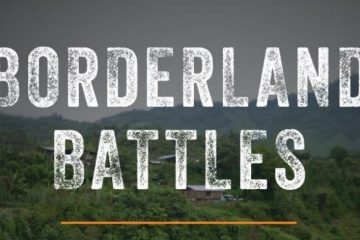
Borderland Battles: Violence, Crime and Governance at the Edges of Colombia’s War
Anette Idler summarizes some of the findings from her new book Borderland Battles, which reveals how violent non-state groups compete for territorial control, co-operate in illicit cross-border activities and replace the state in exerting governance functions in borderlands. Borderlands are like a magnifying glass on some of the most entrenched security challenges of the world. In unstable regions, border areas attract violent non-state groups ranging from rebels and paramilitaries to criminal organisations who exploit their neglect by central governments. These groups compete for territorial control, cooperate in illicit cross-border activities, and substitute for the governance functions usually associated with the state. Studying the Colombian borderlands where armed conflict and organised crime converge demonstrates that the gap between state-centric views on …
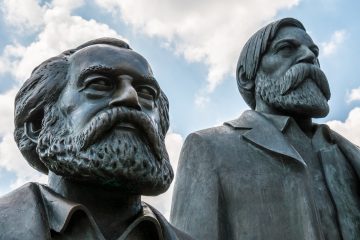
Socialism and Utopia
Researcher: Dr David Leopold Is there a place for utopian ideas in political theory? The appropriate relation between political theory and utopian ideas has become a much discussed topic in political theory. This project is concerned with a historical aspect of that topic and is focused on the hostility towards ‘utopian’ forms of socialism that can be found in the writings of Karl Marx and Friedrich Engels. This project suggests that the character and foundation of that Marxian hostility has often been misunderstood, and demonstrates that Marxian hostility is both more muted, and more clearly defended, than is typically appreciated. Marx and Engels are not only enthusiastic about the critical dimensions of utopian socialism, but also offer a contextual, historically sensitive, …

Measuring Government Policy with Text Analysis
Researchers: Dr Radoslaw Zubek and Dr David Doyle Funder: John Fell OUP Research Fund Most governments would claim to support business, but is government policy enhancing business activity or constraining it? Are government regulations becoming more or less business friendly? Is government policy more favourable to some sectors of business than others? These and similar questions are ones that citizens and businesses ask every day. It has been difficult for social scientists to measure governments’ business policies. Until now, such assessments have mainly been through broad-brush surveys of regulatory environments, which have been limited in scope and frequency. This project offers a better way of measuring the effects of government policy on business. By applying advanced computational linguistics in order …
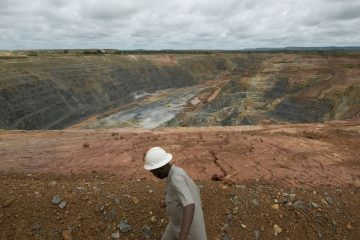
Practical Political Economy for Resource Governance Reform
Researchers: Dr Ricardo Soares de Oliveira (with Ian Gary, Associate Policy Director – Accountable Development Finance, Oxfam America) Funder: ESRC Impact Acceleration Grant Revenues from oil, gas or mineral resources have the potential to transform a country and the lives of its citizens, by reducing poverty and increasing prosperity. But it is rare that countries and their citizens benefit from their natural resources. Why? Many of the problems that remain in resource-dependent countries are political, rather than technical. Problems are often framed as “technical capacity gaps” that need external assistance. Yet governments can fill these gaps if they define them as political priorities. Aid donors increasingly understand the political nature of their work but often downplay or sidestep political questions because …
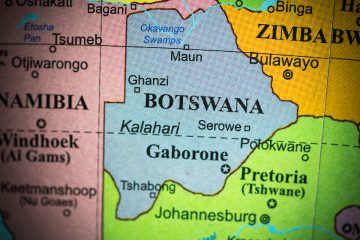
Electoral Competition and the Distribution of Development: Evidence from Botswana
Researchers: Professor Robin Harding (with Mary Clare Roche, PhD Candidate, University of Rochester) In the 1990s, a wave of protest and a democratic global climate led to the fall of autocratic regimes and a series of elections across the African continent. More or less competitive elections were held in dozens of African countries. Much has been written on the subsequent prospects of democracy, but scholars still know little about the effects of this transformation in governance on the distribution of development resources. Do African governments use public resources to help win votes? And if so, how? Up until now, it has been difficult for those studying the distribution of development resources in Africa to know which changes were a response …
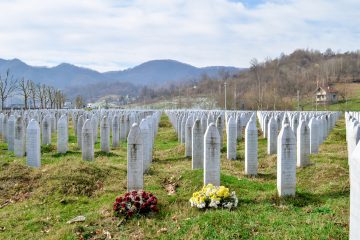
The Ideological Dynamics of Mass Killing
Researcher: Dr Jonathan Leader Maynard “Those who can make you believe absurdities can make you commit atrocities” – Voltaire The mass killing of civilians, both in and outside armed conflict, is one of the greatest challenges facing human civilisation. Around twice as many civilians as soldiers were killed by deliberate political violence in the 20th Century, and recent events in Darfur, Syria and Iraq, as well as the rise in terrorism since 2001, highlight the endurance of mass killing into the 21st Century. How can political ideas drive such violent actions? This project examines the role of ideology in mass violence against civilians, and attempts to understand the ways in which ideology drives violence. A wide range of scholars, governments, …

The Cyber Studies Programme
Researcher: Dr Lucas Kello Funder: The European Social Fund and the Estonian Government New technologies have profound implications for our political and social structures. The cyber revolution in particular is transforming the world we live in, and affects not just our personal lives, but also the dealings of states. Innovations in the use of information technology, for example, have drastically reduced the distance between the state and citizen and have enabled new modes of political organisation. Digital media have created multiple channels of interaction within and between nations. Some of these changes contribute to the cohesion of states and the stability of the states systems; others disturb familiar political and social orders. There is a pressing need for greater understanding …









